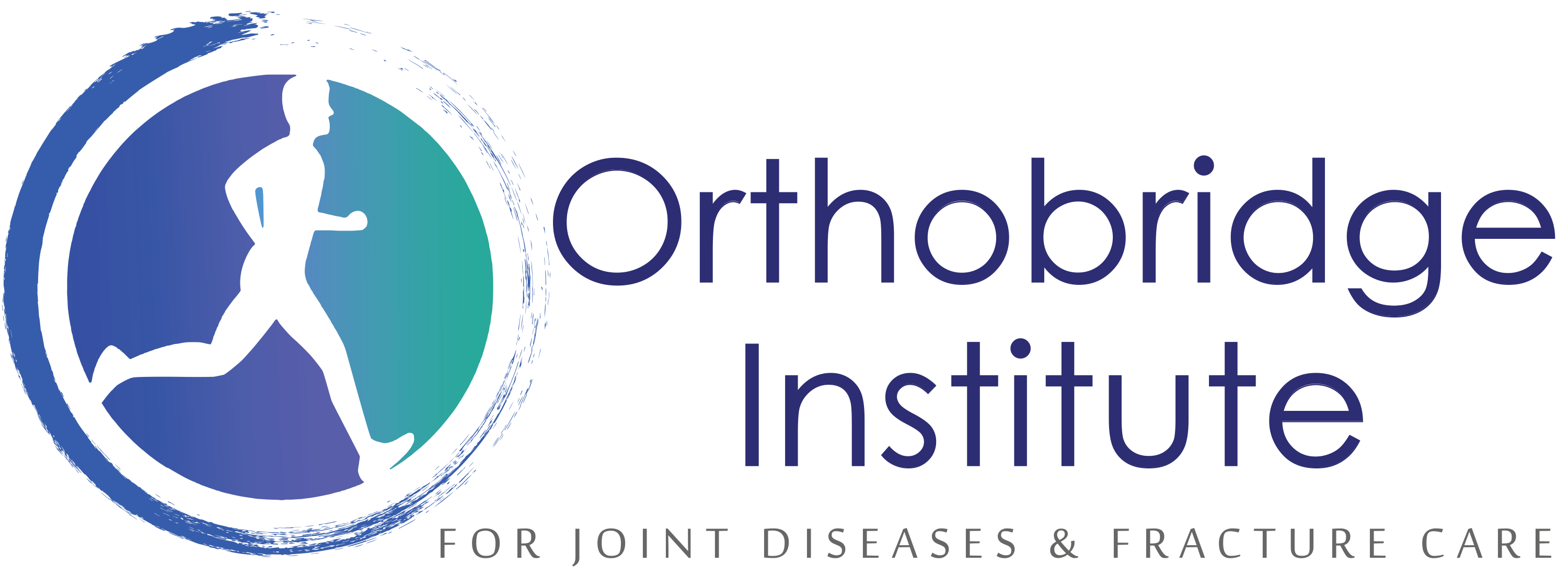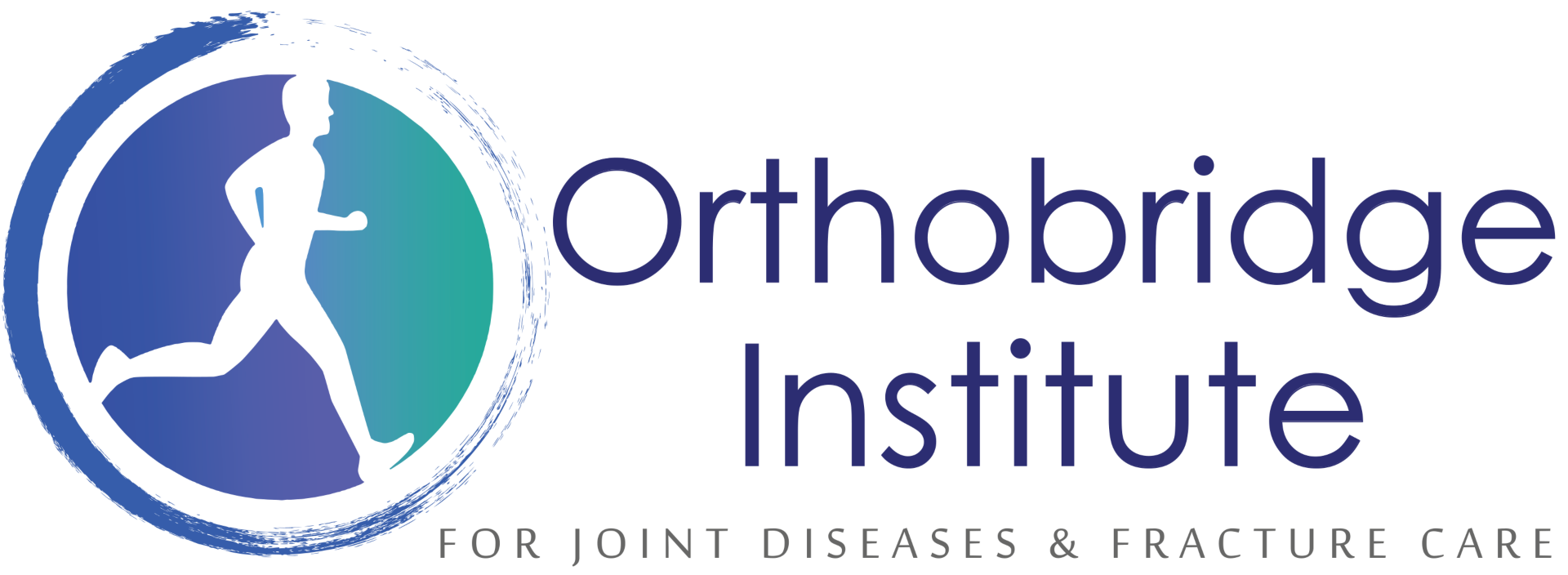Avascular Necrosis (AVN) of the Hip
Learn more about Avascular Necrosis (AVN) of the Hip, which we treat at Orthobridge Orthopedic Centre.
Avascular Necrosis (AVN) of the Hip
Avascular necrosis is a disease that results from the temporary or permanent loss of blood supply to the bone. When blood supply is cut off, the bone tissue dies and the bone collapses. If avascular necrosis happens near a joint, the joint surface may collapse.
This may lead to arthritis. It most commonly affects the head of the femur, but can also affect other bones in the body.

Causes
Avascular necrosis occurs when blood flow to a bone is interrupted or reduced. Reduced blood supply can be caused by:
Joint or bone trauma: An injury, such as a dislocated joint, might damage nearby blood vessels. Cancer treatments involving radiation also can weaken the bone and harm blood vessels.
Fatty deposits in blood vessels: The fat (lipids) can block small blood vessels, reducing the blood flow that feeds bones.
Certain diseases: Medical conditions, such as sickle cell anemia and Gaucher’s disease, also can cause diminished blood flow to the bone.
For about 25 percent of people with avascular necrosis, the cause of interrupted blood flow is unknown.
Risk factors
Risk factors for developing avascular necrosis include:
Trauma: Injuries, such as hip dislocation or fracture, can damage nearby blood vessels and reduce blood flow to bones.
Steroid use: The use of high-dose corticosteroids, such as prednisone, is a common cause of avascular necrosis. The reason is unknown, but one hypothesis is that corticosteroids can increase lipid levels in your blood, reducing blood flow.
Excessive alcohol use: Consuming several alcoholic drinks a day for several years also can cause fatty deposits to form in your blood vessels.
Bisphosphonate use: Long-term use of medications to increase bone density might contribute to developing osteonecrosis of the jaw. This rare complication has occurred in some people treated with high doses of these medications for cancers, such as multiple myeloma and metastatic breast cancer.
Certain medical treatments: Radiation therapy for cancer can weaken bone. Organ transplantation, especially kidney transplants, also are associated with avascular necrosis.
Medical conditions associated with avascular necrosis include:
- Pancreatitis
- Diabetes
- Gaucher’s disease
- HIV/AIDS
- Systemic lupus erythematosus
- Sickle cell anemia

Symptoms
Many people have no symptoms in the early stages of avascular necrosis. As the condition worsens, your affected joint might hurt only when you put weight on it. Eventually, you might feel the pain even when you’re lying down.
Pain can be mild or severe and usually develops gradually. Pain associated with avascular necrosis of the hip might center on the groin, thigh, or buttock. Besides the hip, the areas likely to be affected are the shoulder, knee, hand, and foot.
Some people develop avascular necrosis on both sides (bilaterally) — such as in both hips or in both knees.
Treatment
Although medications, exercises, and rest may slow the progression of the disease, avascular necrosis of the hip will typically need to be treated with surgery.
Surgical options may include core decompression, bone reshaping, osteotomy, bone grafting, or joint replacement (arthroplasty).
Your orthopedic surgeon can provide you with the best treatment plan for your needs.
Hear from some of our patients
Out of country patients
Because of Col (Dr) Adari’s extensive training and experience in elbow arthroscopy, patients travel from all areas of the world for their elbow arthroscopy in Kenya.
If you are an out of the country patient, feel free to let us know so we can accommodate an appropriate time for your consultation with Col (Dr) Adari.
Col (Dr) Adari is known as a top-rated orthopedic & trauma surgeon for elbow arthroscopy in Nairobi, Kenya, and across East Africa, Central Africa, and West Africa.
If you are work – traveling expatriate on diplomatic missions, feel free to contact us so we can accommodate an appropriate time best suited to you for your consultation with Col (Dr) Adari.
Contact us today to reserve your consultation, we are more than happy to assist you with any queries you may have prior to seeing the doctor.
Our Affiliations










